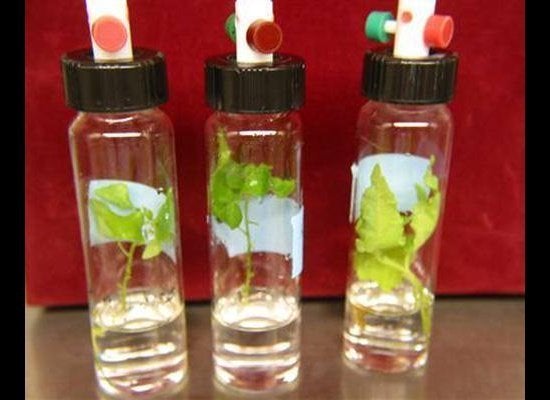
We may be one step closer to designer babies.
The U.S. Patent and Trademark Office issued a patent last Tuesday to the Silicon Valley company 23andMe for its Family Traits Inheritance Calculator, a tool they’ve been using since 2009 as part of their genetics-assessment services.
23andMe CEO Anne Wojcicki is the wife of Google founder Sergey Brin, who, along with Google and Google Ventures, has given $161 million in funding to the company.
Clients send in saliva samples and receive back a report on the different traits and conditions their children might inherit. 23andMe describes the tool as “a fun way to look at such things as what eye color their child might have or if their child will be able to perceive bitter taste or be lactose intolerant.”
But it's the tool's possibilities that have sparked some backlash. When 23andMe filed for the patent in 2008, it considered using the technology for applications in fertility clinics, allowing for more calculated donor selection at egg or sperm banks. The patent allows for recipients to evaluate how their genes may combine with a donor’s, giving an example of a recipient with a higher cancer risk being able to narrow in on a donor with a lower one.
In a press release announcing the patent, 23andMe explained that since filing the patent five years ago, its strategic focus has changed and it no longer has plans to implement the technology in fertility clinics as a donor-selection tool.
The genetics community has still issued pleas to the company, urging it not to develop any donor-selection services. The Center for Genetics and Society said this was a misstep on the part of the patent office.
“It amounts to shopping for designer donors in an effort to produce designer babies,” CGS executive director Marcy Darnovsky said. “We believe the patent office made a serious mistake in allowing a patent that includes drop-down menus from which to choose a future child’s traits,” she continued, adding that 23andMe now has a duty to use this patent as a way to prevent other companies from implementing this technology in fertility clinics.
HuffPost blogger Dov Fox, an assistant professor at the University of San Diego School of Law, noted that the patent office may have shirked some of its moral responsibilities.
“Even if 23andMe doesn't bring its donor selection technique to market, there's still reason to resist granting such patents in the first place,” Fox wrote. “When the government confers a patent for a particular invention, it implicitly approves of that invention as an object worthy of exclusive rights.”
While the technology allows for parents to have a baby with a lower chance of health risks, the selection of other traits -- eye color, athletic ability or skin flush from alcohol, as the patent notes -- may provide a power to parents that is ultimately detrimental.
“The patented technology, by encouraging parents to choose this particular child for just the right characteristics,” Fox writes, “threatens to crowd out our acceptance of children, as they arrive to us, with our desires for what we hope them to be.”

